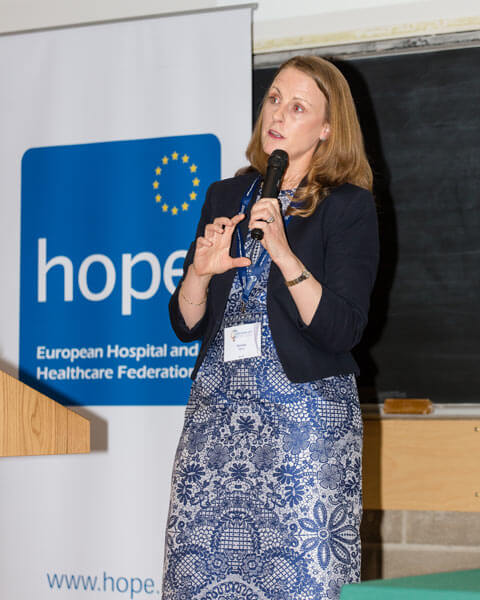Enterprise Ireland supported and drove innovation in healthcare, and our life sciences sector included a leading global cluster of over 500 companies with world-class researchers, Deirdre Glenn, Enterprise Ireland told the AGORA.

She said these companies included those working in the fields of medical devices, sub supply, (bio) pharma and digital IT. Ireland had 17 of the top 25 global medical devices companies and nine of the top 10 global pharma/biopharma companies.
Sixty per cent of companies were indigenous and the sector employed over 50,000 people, with Ireland the seventh largest exporter of medical and pharmaceutical products in the world with exports exceeding €50bn annually.
Speaking on “Enterprise Ireland Innovation Supports for Healthcare,” she said Ireland was in strong recovery mode – GDP growth of 5.2% for 2016, by far the strongest in Europe.
“We have a pro-enterprise focus with a government culture receptive to companies looking to innovate, grow and compete globally.
“Ireland has been ranked 18th out of 190 economies by World Bank 2017 for ‘ease of doing business.’ There are 189,000 enterprises in Ireland employing 1.5 million people. Eighty per cent of companies are SMEs and 20% foreign-owned multinationals. We have a high rate of entrepreneurship – almost 10% of adult population (Global Entrepreneurship Monitor Report 2013).
“We have a capable young workforce – the youngest population in Europe with one third of the population under 25 years. We also have a strong regulatory track record, and excellent education system and talent availability.
Ms. Glenn said Enterprise Ireland was responsible for supporting Irish businesses in the manufacturing and internationally traded service sectors. It had an annual budget of €343M, an international network of 33 overseas offices, over 5,000 client companies and innovation activities across all industry.
Ireland has been ranked 18th out of 190 economies by World Bank 2017 for ‘ease of doing business.’
It supported high growth industries including food, life sciences, construction, medical technology, agricultural technology and international financial services
It drove the capacity of Irish companies to deliver innovation and was the lead agency supporting the commercialisation of research and industry-led collaboration with the academic community.
Ms. Glenn said this was vitally important as companies engaging in research and development performed better. They were fed by graduates and talent and had access to significant international innovation funds.
A new Government Strategy supported continued investment in research and innovation.
“Healthcare Innovation is driven by co-operation – clinicians, academia, business to business.
Ms. Glenn said that the Health Innovation Hub in Ireland, officially launched last year, was a joint initiative between Department of Jobs, Enterprise and Innovation (DJEI) and the Department of Health (Enterprise Ireland and HSE) It had four academic partners and associated hospital groups and Clinical Research Facilities.
It facilitated and accelerated the commercialisation of innovative healthcare solutions in public hospitals.

